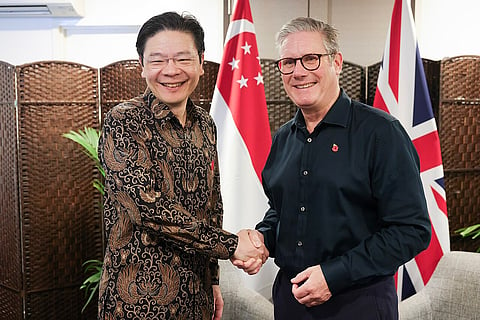

Singapore’s People’s Action Party (PAP) has secured its 16th consecutive general election victory, reinforcing its political dominance as voters prioritized stability amid rising geopolitical tensions and economic challenges.
The PAP, in power since 1959, won 87 of 93 contested parliamentary seats, including five that were uncontested, according to official results announced early Sunday. Under Prime Minister Lawrence Wong—who took office just a year ago—the party captured 65.6% of the popular vote, up from 61% in 2020 and marking its strongest performance in a decade.
More than 92% of Singapore’s 2.6 million registered voters cast ballots, a slight dip from the 96% turnout in the previous election. The results solidify Wong’s leadership as the party navigates a transition beyond the era of the Lee family, which has shaped Singapore’s politics for over half a century.
The election unfolded against a backdrop of global trade tensions, with Singapore—a financial hub whose trade volume exceeds three times its GDP—facing heightened vulnerability to economic shocks. The government recently downgraded its 2024 growth forecast to 0-2%, citing potential disruptions from U.S.-China trade frictions and inflationary pressures.
“The results will put Singapore in a better position to face this turbulent world,” Wong said in a pre-dawn address. “It’s a clear signal of trust, stability, and confidence in your government.”
The opposition Workers’ Party (WP) retained its 10 seats but failed to expand its foothold. WP leader Pritam Singh, recently convicted of lying to parliament in a case he is appealing, acknowledged the uphill battle, stating, “The slate is wiped clean. We start work again tomorrow.”
Wong, Singapore’s fourth prime minister, is the first PAP leader in decades to improve the party’s vote share in his debut election—a departure from the traditional “new PM effect” of declining support. Analysts attribute the rebound to his emphasis on steady governance and a fragmented opposition, with 10 parties splitting the anti-PAP vote.
However, his administration faces mounting domestic pressures, including soaring living costs, housing affordability concerns, and calls for greater political diversity. While older generations credit the PAP for Singapore’s economic ascent, younger voters have grown increasingly vocal about inequality and restrictive policies.
U.S. Secretary of State Marco Rubio congratulated Wong, praising the two nations’ “enduring strategic partnership.” Yet as global headwinds persist, the PAP’s latest mandate will be tested by its ability to balance stability with evolving public demands.